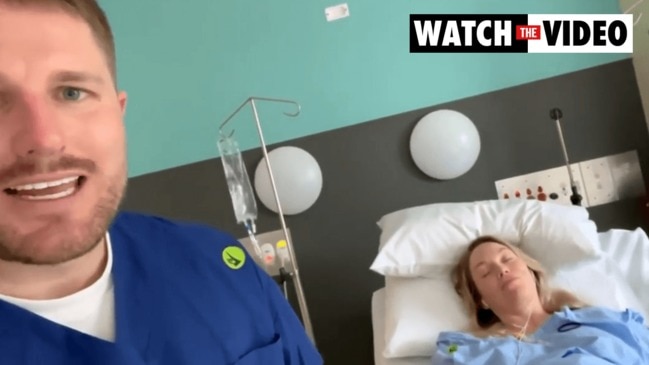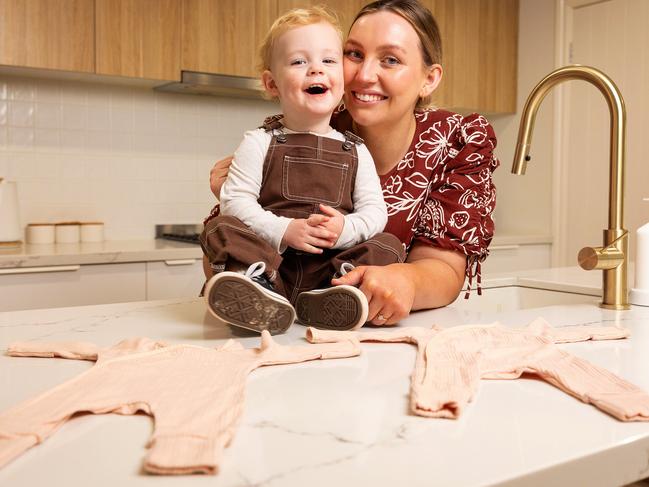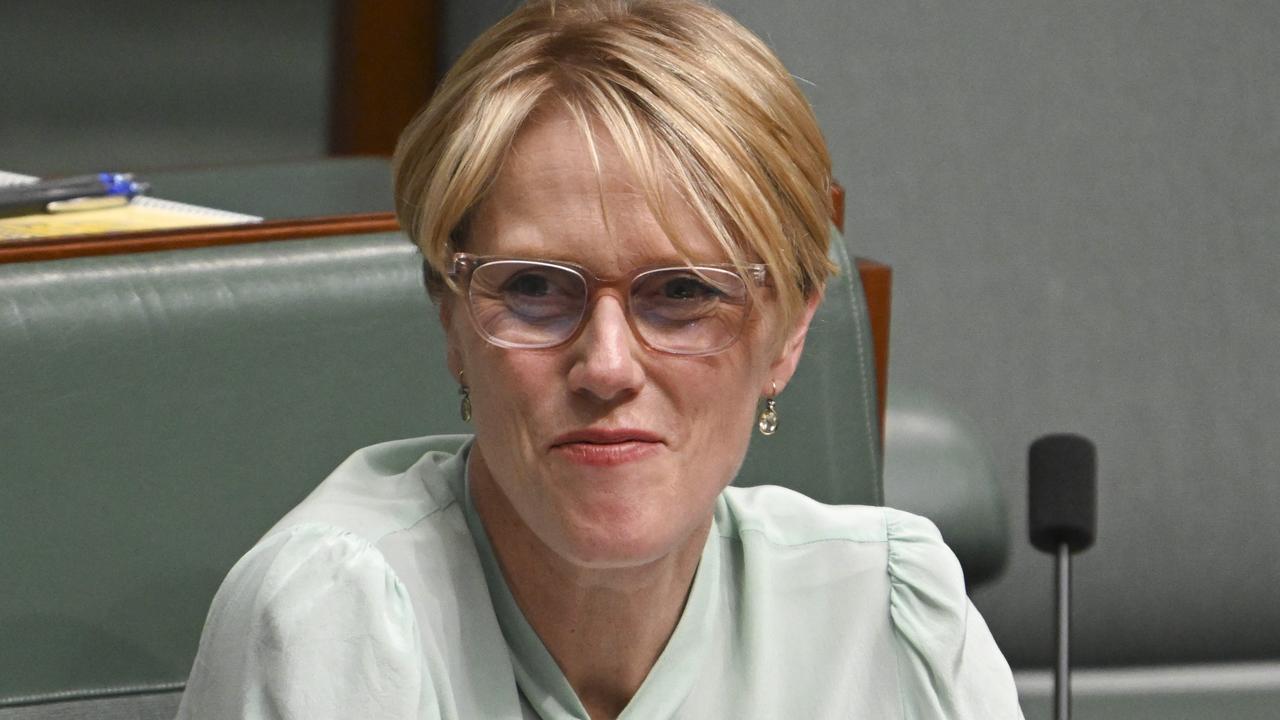Monash looks at aspirin to prevent pre-eclampsia in twin pregnancy
Melbourne mums are being invited to join a new international study to better understand if aspirin can help prevent high blood pressure in pregnancy.

Victoria
Don't miss out on the headlines from Victoria. Followed categories will be added to My News.
Finding out she is having twins came as a “bit of a shock” for pediatric nurse Emily McCulloch and partner Rhys Cordell.
Already parents to son Charlie, almost 2, there is no family history of multiple births and it was not IVF-assisted.
Now almost 14 weeks pregnant with twin girls Ms McCulloch says the family is very excited and looking forward to their arrival.
And she is going the extra yard to ensure their health and that of her own.

Ms McCulloch has joined a new international study that is inviting Melbourne mums in early twin pregnancy to better understand if aspirin can help prevent high blood pressure in pregnancy and the early birth of their babies.
Women less than 14 weeks pregnant with twins can join mums from 43 hospitals worldwide as part of the trial.
It will look at preventing pre-eclampsia, a serious but relatively common high-blood pressure disorder of pregnancy that is much more common in twins.
The condition triggers high blood pressure, protein in the urine and severe swelling and can be deadly for mothers and babies.
There is no cure for pre-eclampsia and it often requires the early delivery of the baby. In Australia one in 20 women will be diagnosed with pre-eclampsia in pregnancy.
Monash University’s Professor Daniel Rolnik is leading the Australian arm of the study called ASPRE-T.
His earlier research is credited with helping to overhaul the clinical management of women with hypertension (high blood pressure) in single pregnancies and he wants to better understand if the same can be achieved for women with twins.
Ms McCulloch said she took aspirin in her pregnancy with Charlie as she was at risk of developing pre-eclampsia.

She joined this study because she likes that the mums and babies are closely monitored.
“And the more people looking at these twins throughout my pregnancy, the better.”
Ms McCulloch said it was also nice to try and improve other people’s outcomes for their pregnancies later on if it does work.
The study will look at aspirin versus placebo as a prevention and neither the doctor nor patient will know which one they are receiving.
“Women pregnant with twins are more likely to have high blood pressure, and to give birth prematurely, which means the babies are smaller, more likely to spend time in neonatal intensive care and consequently have lower scores of overall health,” Professor Rolnik said.
“If we can achieve the same result in reducing pre-eclampsia in women pregnant with twins as we have in women with singleton pregnancies there will be a lot more healthy babies being born.”
To be involved, speak to your GP, midwife, or obstetrician and those eligible will need to travel to one of the participating hospitals for ultrasound scans, which will be provided as part of the study.
For further details contact Professor Rolnik, midwife Madeleine Kendall or midwife Lisa Le Bec by email on aspret@monash.edu or call 0456 409 087.
Originally published as Monash looks at aspirin to prevent pre-eclampsia in twin pregnancy




